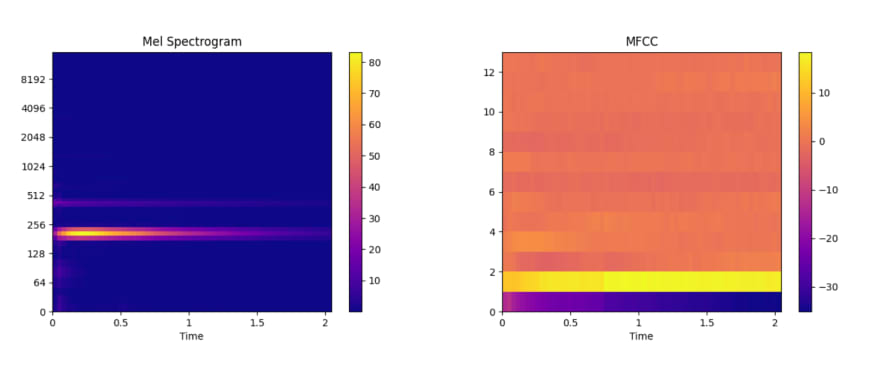Category Submission:
C/Python
Screenshots
Description
A library for audio and music analysis and feature extraction, which supports dozens of time-frequency analysis and transformation methods, as well as hundreds of corresponding time-domain and frequency-domain feature combinations, can be provided to the deep learning network for training, and can be used to study the classification, separation, music information retrieval (MIR), ASR and other tasks in the audio field.
Link to Source Code
https://github.com/libAudioFlux/audioFlux
Permissive License
MIT
How I built it
Systematic and multi-dimensional feature extraction and combination can be flexibly used for various task research and analysis.
The performance is efficient, the core is mostly implemented in C, and FFT hardware acceleration based on different platforms is convenient for large-scale data feature extraction.
It is applicable to the mobile end and supports real-time calculation of audio stream at the mobile end.
Additional Resources/Info
Code Demo
pip install audioflux
import numpy as np
import audioflux as af
import matplotlib.pyplot as plt
from audioflux.display import fill_spec
# Get a 220Hz's audio file path
sample_path = af.utils.sample_path('220')
# Read audio data and sample rate
audio_arr, sr = af.read(sample_path)
# Extract mel spectrogram
spec_arr, mel_fre_band_arr = af.mel_spectrogram(audio_arr, num=128, radix2_exp=12, samplate=sr)
spec_arr = np.abs(spec_arr)
# Extract mfcc
mfcc_arr, _ = af.mfcc(audio_arr, cc_num=13, mel_num=128, radix2_exp=12, samplate=sr)
# Display
audio_len = audio_arr.shape[0]
# calculate x/y-coords
x_coords = np.linspace(0, audio_len / sr, spec_arr.shape[1] + 1)
y_coords = np.insert(mel_fre_band_arr, 0, 0)
fig, ax = plt.subplots()
img = fill_spec(spec_arr, axes=ax,
x_coords=x_coords, y_coords=y_coords,
x_axis='time', y_axis='log',
title='Mel Spectrogram')
fig.colorbar(img, ax=ax)
fig, ax = plt.subplots()
img = fill_spec(mfcc_arr, axes=ax,
x_coords=x_coords, x_axis='time',
title='MFCC')
fig.colorbar(img, ax=ax)
plt.show()









Top comments (0)